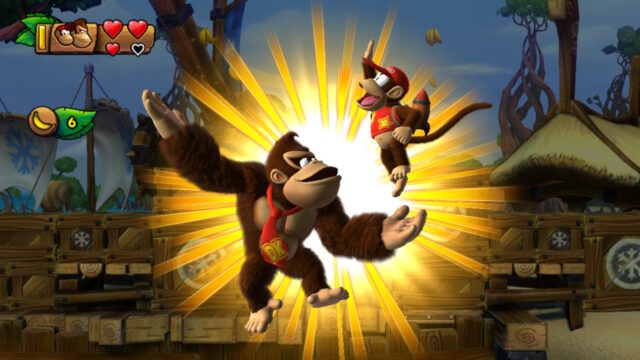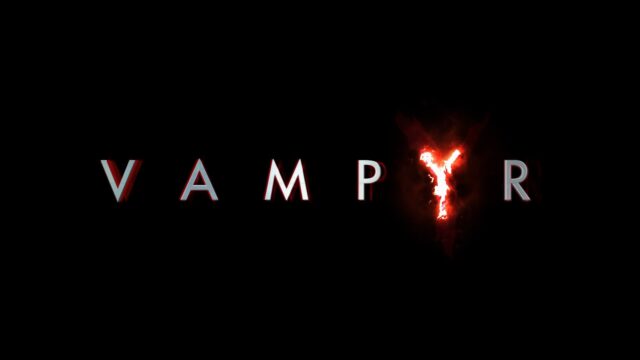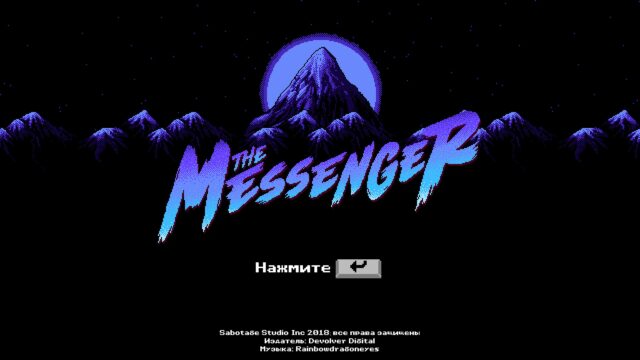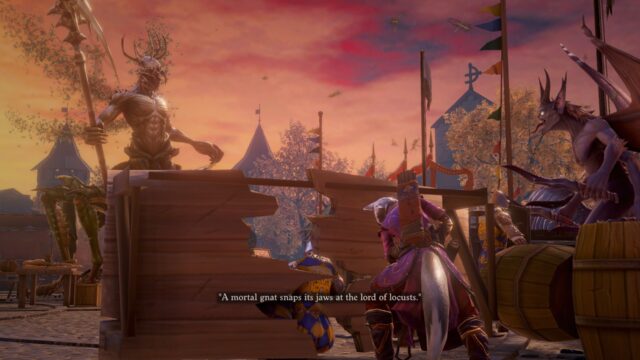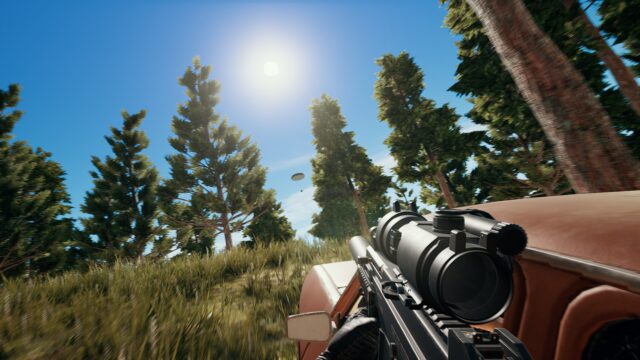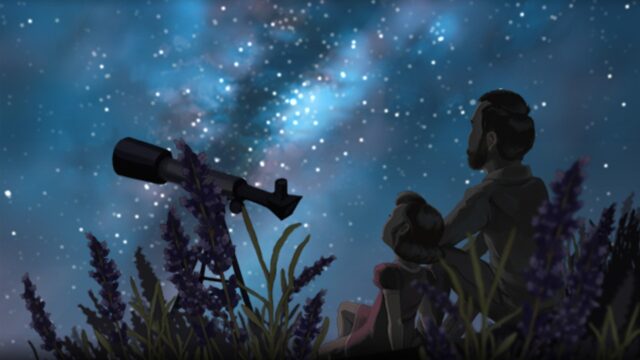Intolerable Augmentation of Existence – Deus Ex: Mankind Divided Review
What do people want from sequels? The same thing as always – an excuse to quickly replay the original game one and a half hours before the release of the new one, so as not to feel like outsiders at the general celebration of life. Some, of course, expect unprecedented heights in the development of their favorite series, successful continuity, and other trivialities, but we know that such people are a minority and it’s just another category of hipsters.
Deus Ex: Mankind Divided also knows this and pursues a different goal. Like a diligent offspring, it cares not for itself, but for its ancestors, so it pretends to be a not very high-quality game in order to make Human Revolution look even better in comparison. Even if it didn’t seem good to you at the time, the sequel might make you reconsider your views.
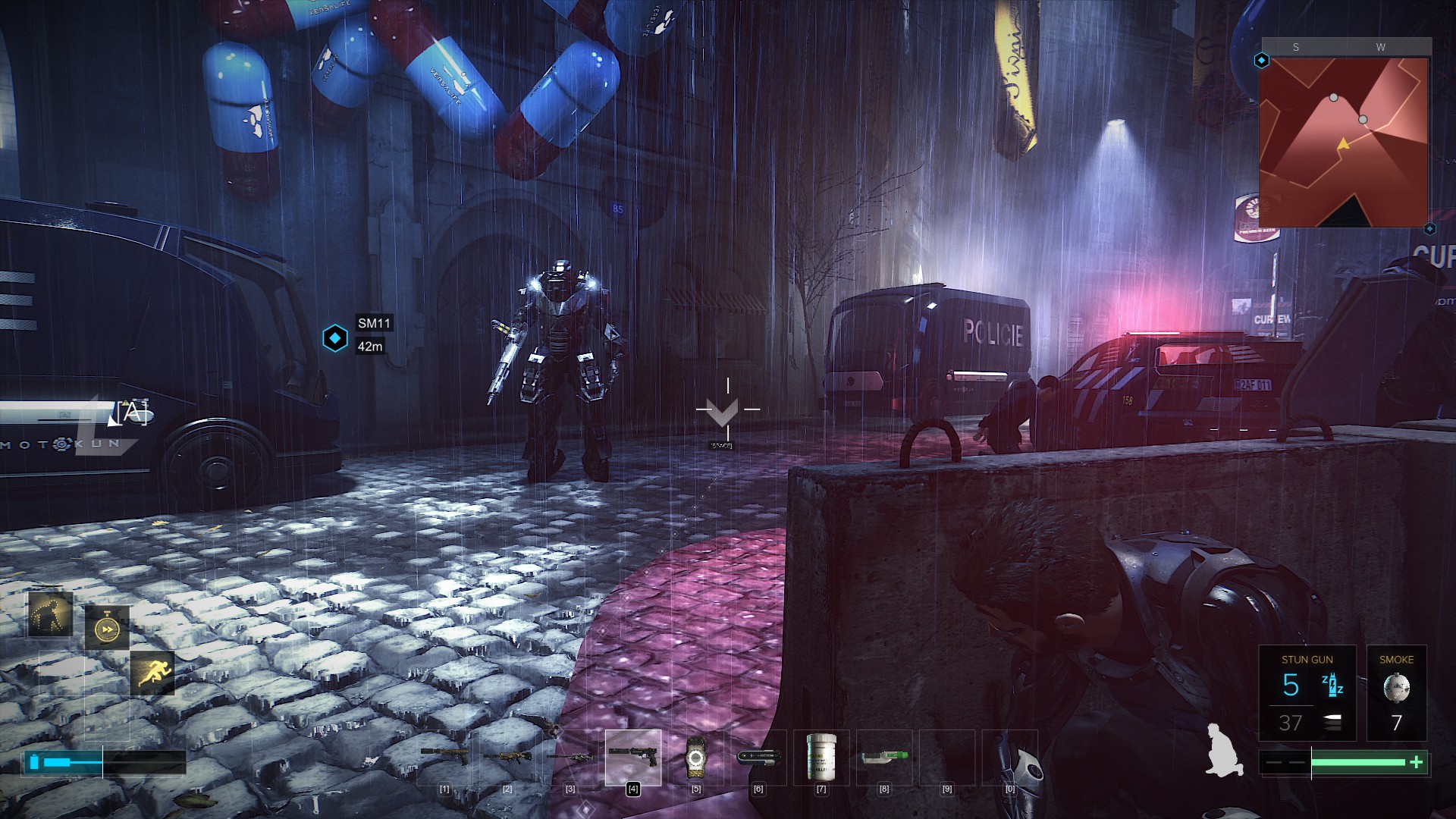
After the unfortunate incident in the finale of the previous part, Adam Jensen undergoes treatment at a medical center in Alaska, where he actively works on a worthy continuation of the storyline. It is there that he comes up with such a brilliant script for Mankind Divided that he loses his memory out of excitement, including all the developments and memories of a dozen endings, the development of which we have been waiting for five years. No one pressed any buttons, nothing special happened, and Hugh Darrow… who is that?
In desperation, Jensen calls Eidos Montreal and explains the situation. “Oh Adam, arrête ton char!” – a voice from the receiver says. “We will sort everything out, oui, oui, and in the meantime, you deal with other matters. Allons-y!” When asked about the unresolved endings, no answer is given, but the protagonist is assigned to Interpol and sent to Dubai for an urgent mission – to show that the developers have finally played games released after 2004 and made gameplay adjustments based on what they saw.
Upon arrival at the unfinished Arab hotel, we learn that playing has not become particularly more comfortable. Except that wall rubbing now has slightly richer possibilities and resembles a good cover system from The Division, weapon modules can be changed with a focused gaze, and crafting has appeared in the menu tabs, allowing you to assemble primitive items like nanobatteries, tesla cartridges, and universal hacking devices from two nuts. It doesn’t strive for critical updates in mechanics – it just feels more modern and neater, so to speak. And shooting… Well, people don’t like shooters, what’s the fuss about? As if you don’t reload after every failed stealth mission, I swear. What difference does it make to you?
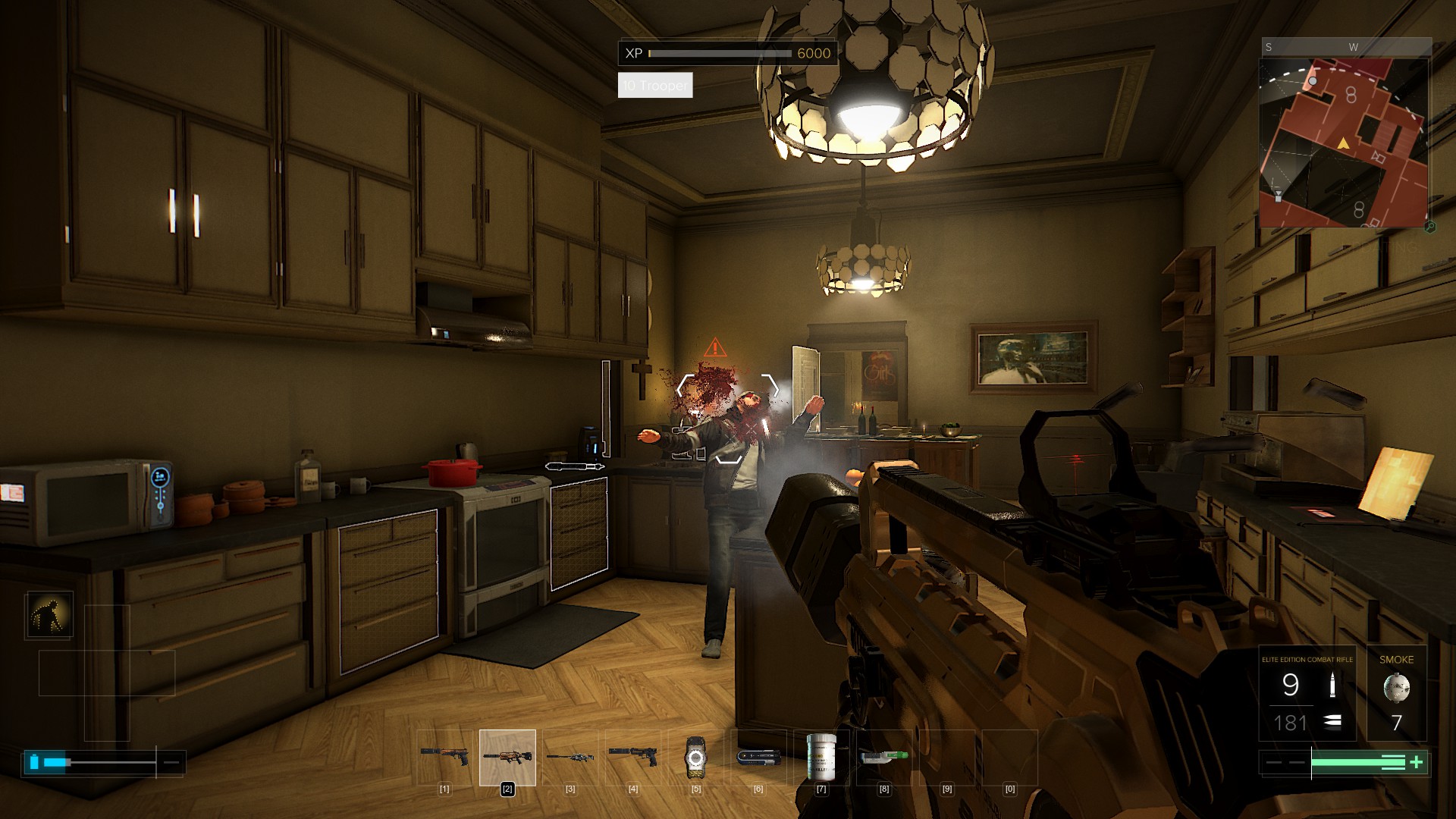
The emphasis is still on stealth and the use of superpowers, and in this regard, even less has changed. Since there is no one to spy on augmentations, the list has only been supplemented with a few new techniques, none of which are absolutely important or interesting. No, remote control of electronics certainly sounds cool and simplifies life in many ways, but it is not necessary to strain without it. With such artificial intelligence.
A thorough psychological analysis of enemy behavior in the game led us to the conclusion: they all recently blocked Jensen on “Twitter” and now diligently ignore him to avoid uncomfortable conversations. Here, as before, you really have to try very hard to meet someone’s gaze, let alone raise an alarm. In most situations, the best way to remain unnoticed is to move forward with such an appearance as if you have every reason to be here. Just like in real life!
Look for the new, but don’t lose the old.
It is noteworthy that one of the main motifs – the rehabilitation of our protagonist after a terrible injury – remains in the new game. This time, however, Jensen’s suffering will be more aesthetic, as constantly seeing the Mankind Divided interface in front of his eyes must be damn painful. Despite even more console simplifications, he has gained functionality and organization, but in terms of stylistic indicators, he hangs somewhere between a manual for a Chinese coffee maker and all other modern projects. There is no trace of the former inventiveness in forms, tones, and even fonts – only trendy “square” design, which does not fit into the remnants of fancy design.
And there’s also a health bar on the right here. Now you’ve seen it too.
In general, realizing that there is nothing new here, and with several hours until the return flight, our hero breaks through the hotel complex and plans to prevent an illegal arms deal. Everything goes according to plan until one of its participants throws such a talentless reference to Mass Effect, that a third party interferes and organizes a natural massacre. The line, however, is exclusive to the disgusting Russian localization, but the outcome remains the same – the scam is interrupted without our involvement in any case.
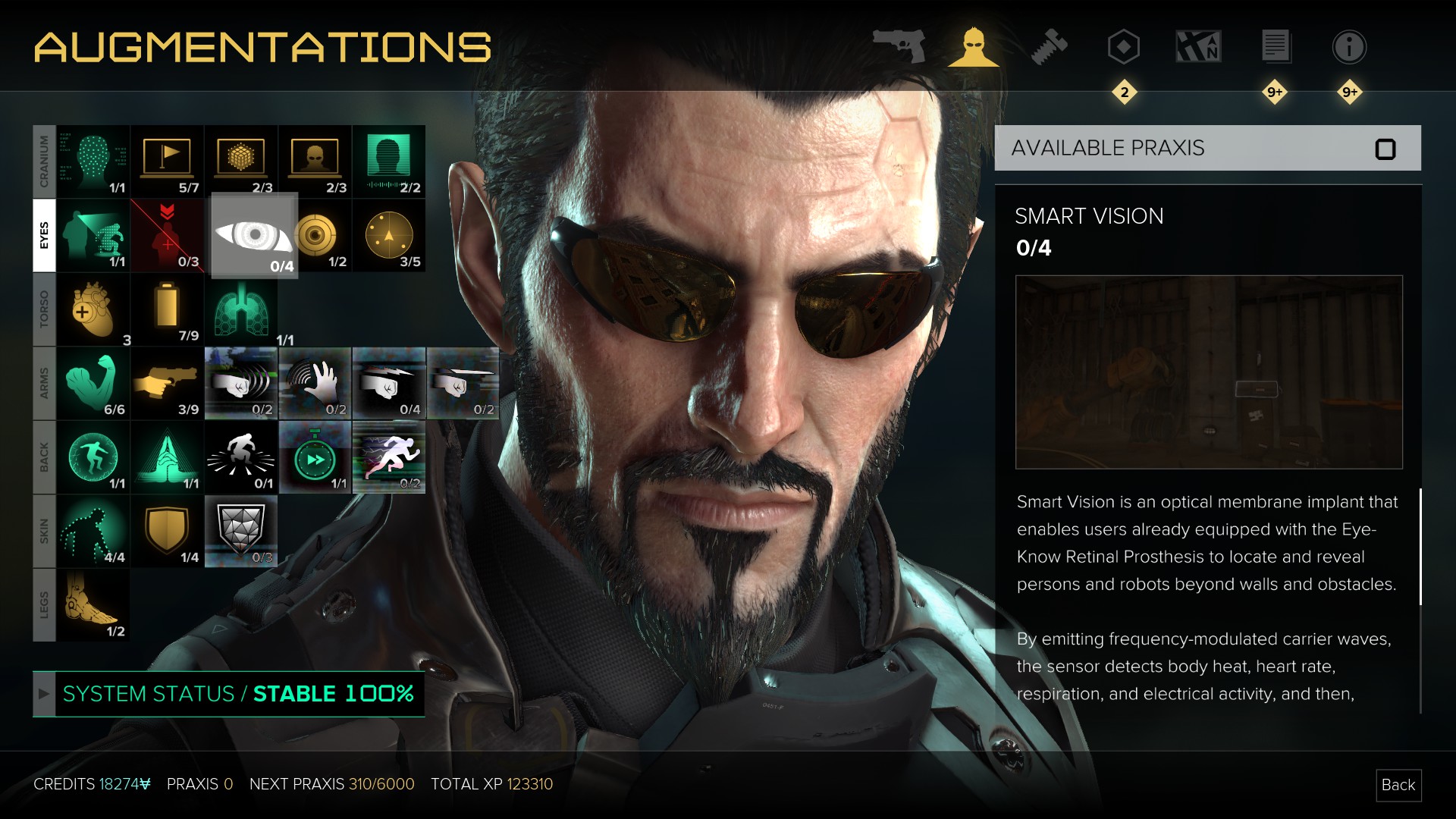
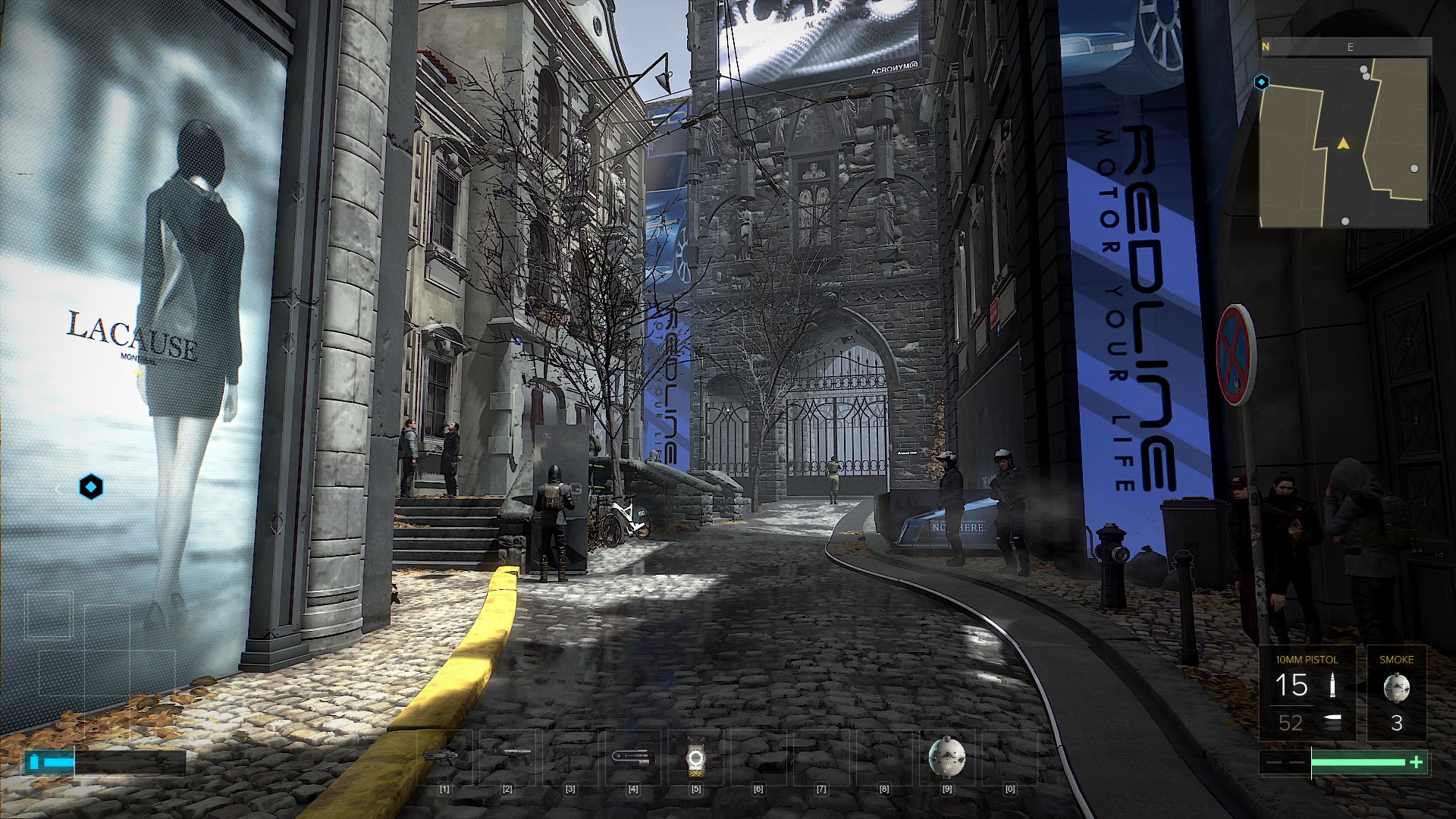
Disappointed by the fact of his own uselessness, Adam returns to his base in Prague – and accidentally ends up in Homefront: The Revolution Either way, the artistic palette of Mankind Divided, having subdued the fever of yellow shades, is now experiencing some kind of crisis of individuality. The environment is alive, relatively diverse, and very detailed in the right places – but no longer unique at all. Around it is a typical dystopia, a typical futuristic setting – everything is ordinary, like everyone else. When the lights go out closer to the middle, the signature atmosphere noticeably increases, and yet the substitution is felt.
Even the plot here is appropriate: widespread segregation of augmented individuals, social unrest, total control, terrorist attacks, and secret organizations fighting each other. A typical setup about how all people are equal, but some are slightly less equal. The only thing missing is perhaps Korean occupiers, but the place of the sworn enemy is already occupied by the Illuminati for the second time. We just can’t seem to reach them.
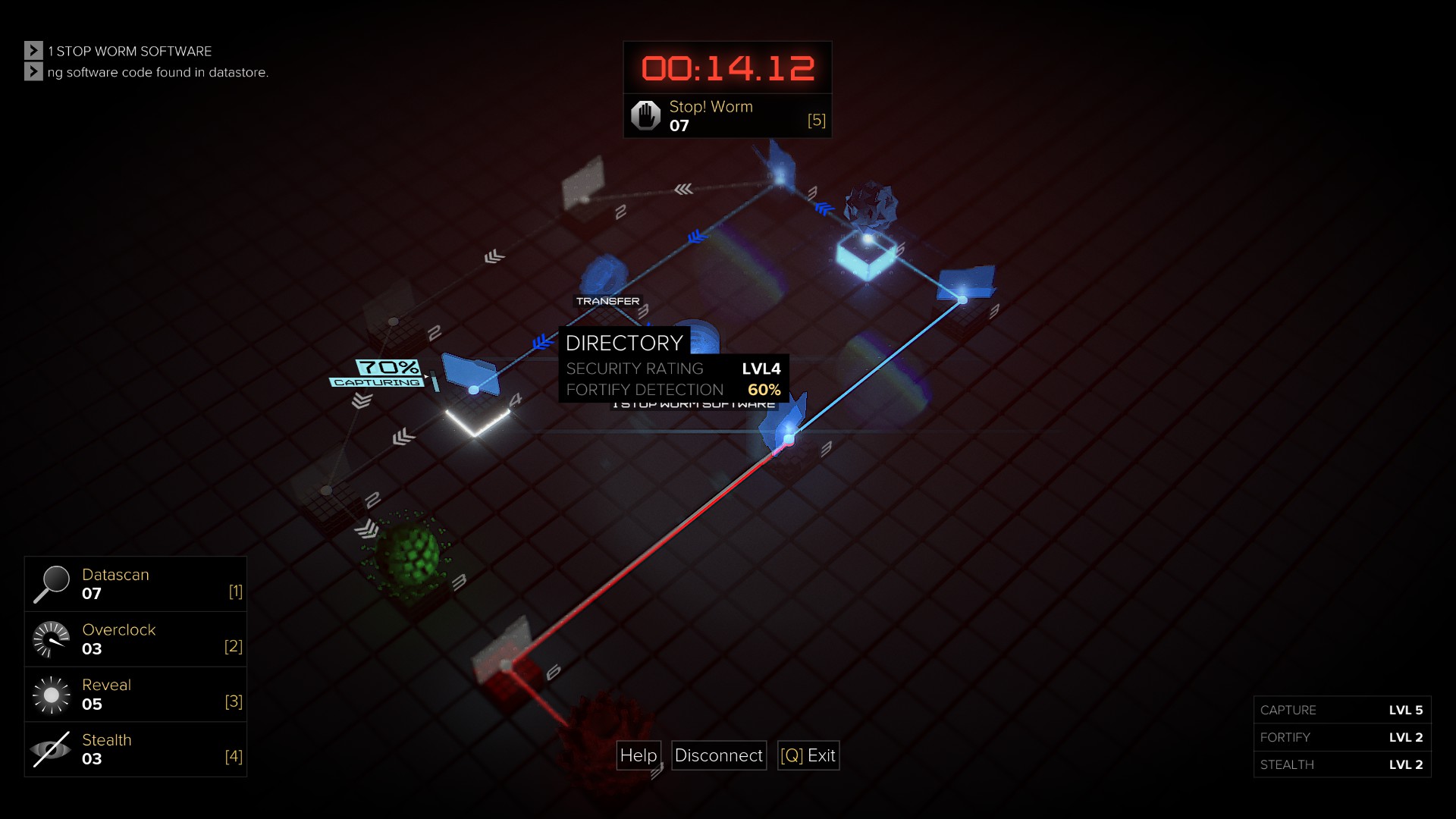
The well-thought-out mechanics of hacking could easily pass for an engaging mobile puzzle.
Fortunately, all the key characters also made mistakes in the game, so it doesn’t become a problem for anyone. Here is the TV with former boss Jensen on the line, and all the colleagues, and even the current boss, who looks too much like an elderly Sam Fisher to be anyone else. Adam remembers that the last two Splinter Cell games were not very good, so he doesn’t rush to trust the management – and quickly finds a group of hackers from Watch_Dogs and together with them tries to expose it, while uncovering a conspiracy of a secret government.
But soon he looks around and realizes that the plot in Mankind Divided is only half as exciting as before. It is simply uninteresting to follow the story, which revolves around a banal war between factions: there are no significant events for the universe, it does not bring up anything new for discussion, profiting from the questions raised in Human Revolution, and the characters are forgotten before they leave the frame. Well, after the main villain almost directly says at the first meeting, “I AM THE MAIN VILLAIN!1” – and no one does anything about it until the final mission, Jensen abandons all this world-saving business and nostalgically goes to help random passers-by, reminiscing about the times of the Panchea Incident.
And here comes the main plot twist. It turns out that the main storyline is just a series of boring and poorly thought-out side quests. In fact, Mankind Divided is about crawling through slums and begging for quests from the city’s inhabitants. Of course, Eidos had it all planned from the beginning!
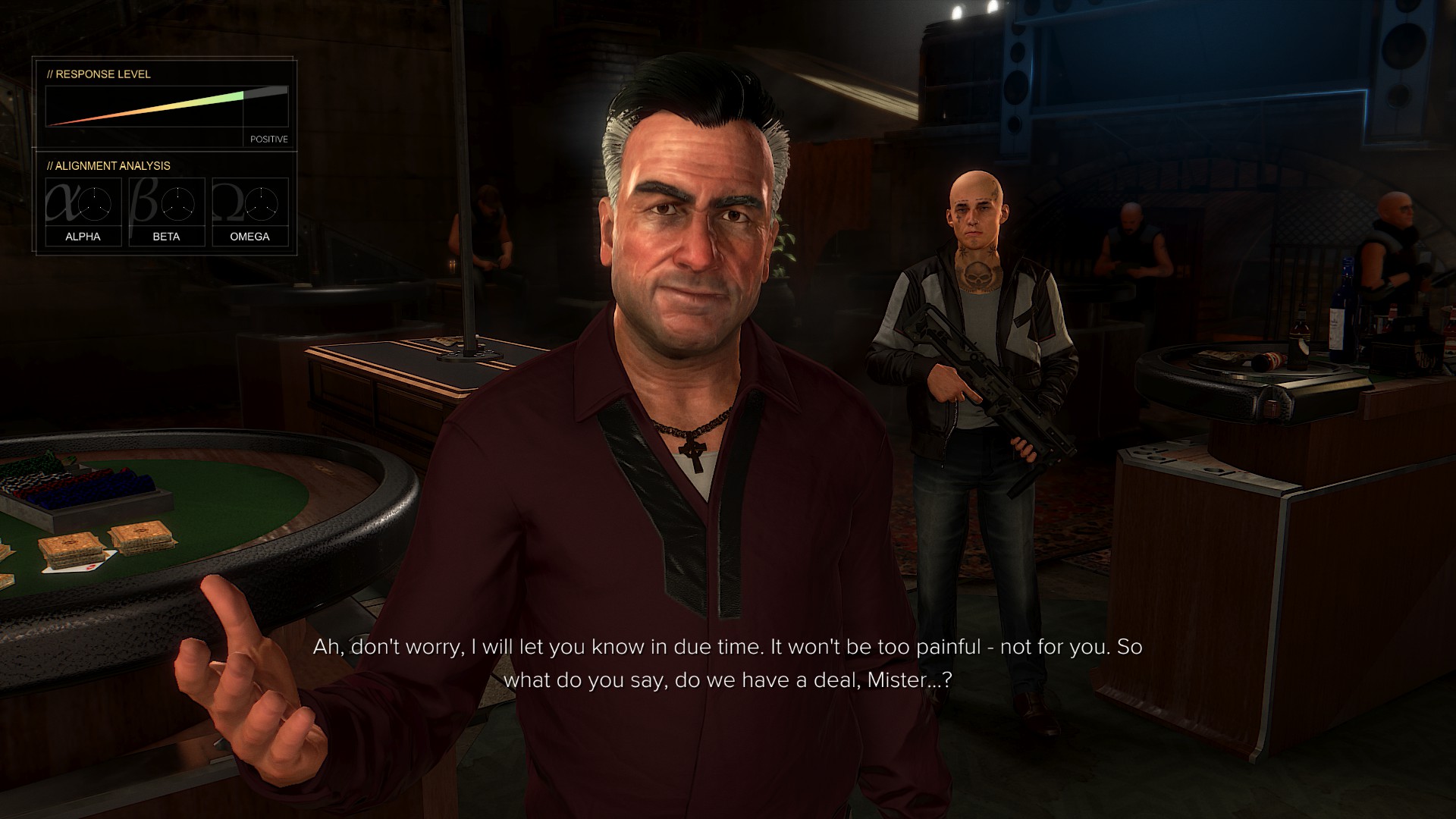
Despite the fact that in the world of Homefront: The Revolution 2, there are mostly unsuccessful actors who have a weak command of facial expressions and gestures and are designed in a special way so as not to be memorable even to people with photomemory implants, they give excellent assignments. By searching through the slums, you can come across a group of revolutionary journalists, join a cult, or even conduct a full-fledged investigation in the style of L.A. Noire – and get much more enjoyment from all of this than from what is happening in the foreground.
Exploring the area, no matter how dull and gray it may seem at first, is actually a bright and intriguing activity. First and foremost, the mini-stories that come up are truly original and well-written. Some of them even feature a couple of curious NPCs who manage to develop to a satisfactory level in such a short time. But if you want another stunning twist – the most charismatic character is under our control throughout the game, and there’s nothing you can do about it.
Moreover, the variability of the gameplay is more appropriate than ever in them. Non-linearity goes far beyond just finding a way through ventilation to reach the target, and the compact framework of side quests does not scatter the player’s choices for hours, making them momentary and spectacular. Although small deeds may not solve anything in the overall picture, they provide a clear sense of involvement and the uniqueness of the story.
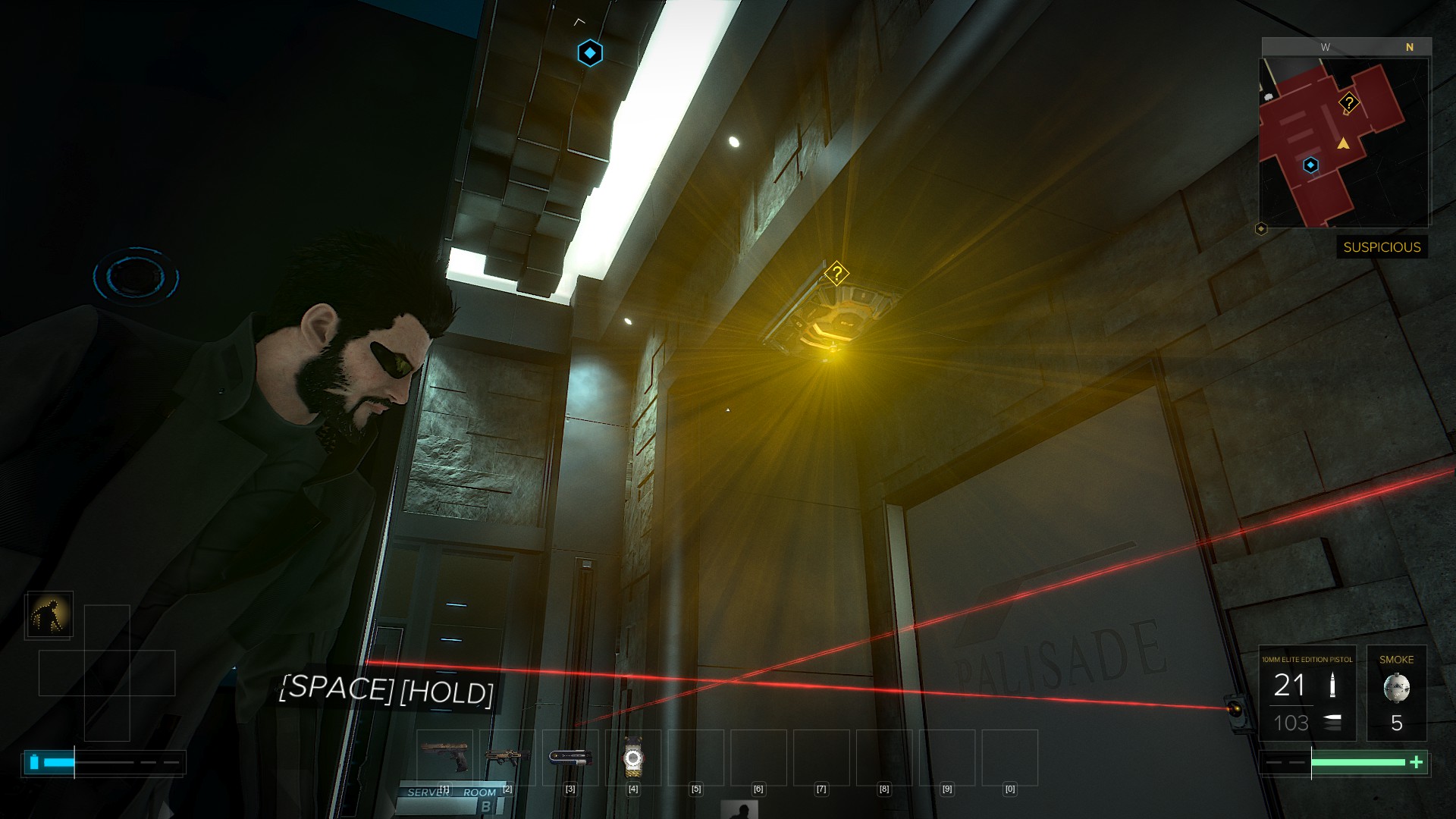
Just as we started to seriously talk about the good things, everything gets ruined – you guessed it! – by the technical side. And it’s not about performance at all: the fewer frames per second, the more hours you’ll spend playing, right? And it’s not even about the loading times of one or two minutes – obviously, the developers give you that time to write user reviews on Steam. But the functional purpose of regular crashes, disappearing dialogues, and menus that get stuck, from which you can only exit by loading a save, remains a mystery. There aren’t as many tiny flaws as some others have, but enough to turn the pompous “Day One Edition” into waiting for the fourteenth day when they finally realize on the other side of the source code that they forgot to test their creation before release.
On this sad note, however, it is worth noting that without comparing it to its predecessor, the new game still holds up well. With the right balance of main and side missions, you get over twenty hours of solid seasonal blockbuster without any unnecessary gimmicks. But compared to what was before – yes, one step forward and two steps back. Perhaps, after the release of the third part, which the authors unmistakably hint at, we will learn to appreciate Mankind Divided with all its flaws, but for now, it is a decent but passable chapter in Adam Jensen’s adventures.
The second revolution did not happen. Mankind Divided is just an updated add-on to Human Revolution, which doesn’t always keep up with the original and diligently inherits almost all of its shortcomings.
Share
Discuss
More Reviews
